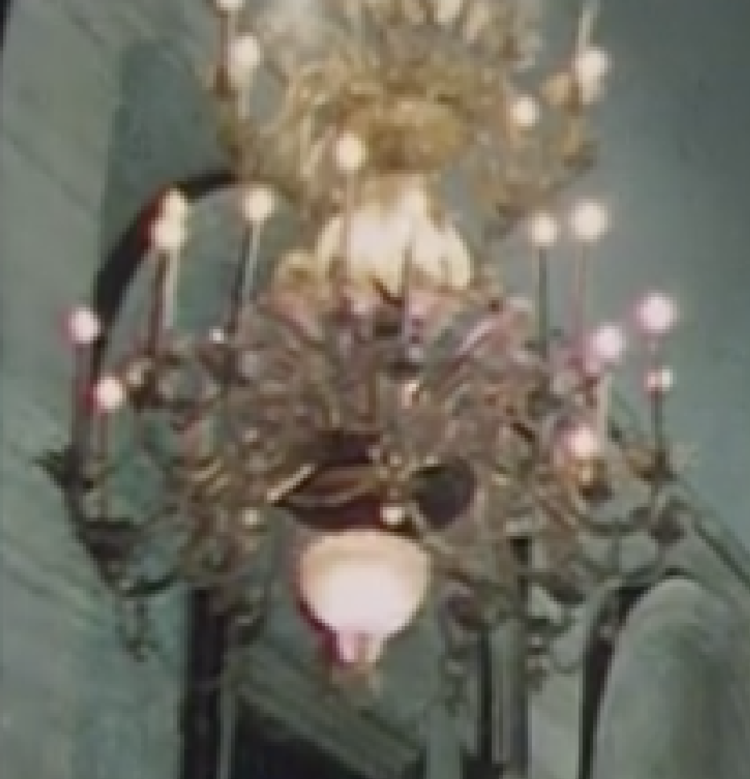"One of the year’s most impressive debuts.”—David Gutowski, LargeheartedBoy.com
“A skin-crawling drama about three generations of women and their relationships to one another. . . a satirical comedy that is at its core a book of poetry, or literary art.”—Artnet
Did Vivienne Volker Kill Wilma Lang?
This question has dogged Vivienne ever since Wilma jumped from a window to her death shortly after Volker stole her lover, the visionary artist Hans Bellmer, in the 1970s. Once a famous artist and fashion icon, Volker is now in her eighties and spends her days in religious contemplation in rural Pennsylvania alongside her daughter Velour Bellmer, her granddaughter Vesta Furio, her much younger boyfriend—a garbageman named Lou—and Franz, the family dog. Their quiet lives are disrupted when Vivienne’s work is selected for inclusion in a high-profile retrospective called "Forgotten Women Surrealists" at the prestigious NAT Museum. However, when rumors of her past misdeeds begin to circulate and she is dropped from the show, a gallery curator enters the picture hoping to capitalize on the buzz generated by the controversy, sending the family's tensions, hopes, and dreams to a dizzying peak.
Set over the course of a fateful week, Vivienne deftly weaves surreal prose with a Greek chorus of internet comments and text messages, to ask the questions: what is the cost of vision, what is the price of art? What connects creation and procreation, a life and an afterlife?
"Stylish, satirical, and inventive, contemporary yet timeless, Vivienne takes place where urgent and unanswerable questions reside, at the intersections of art, love, and the immortal soul. It is surprising, mysterious, and delightful at every turn of the page, an utterly singular story circling the life and legacy of a fascinating and larger-than-life figure.” —Sarah Gerard, author of True Love
“Russo is acidly funny . . . a talented enough writer to leave us with her characters, their interiority.”—Ross Barkan
“Vivienne is a story of vision and creation; its author is an astrologer and mystic who deftly intertwines the art world with that of the occult.”—Evening House
"Vivienne is a dizzying, bold novel told in text messages, open letters by protesters, and vivacious surrealist prose."—Language Arts
“Few these days manage to pull off such a playful yet measured balance between the sacred and the profane as well as Fitzgerald did . . . though Emmalea Russo’s latest novel Vivienne does come close.”—Stephen Adubato, Real Clear Books
“If you like your fiction offbeat, unpredictable, and a little unhinged, Vivienne is calling your name.”—@booksontherunway
“In an instant, one of our finest poets has become one of our finest novelists. Emmalea Russo is—as Leonard Cohen sang—‘All dressed to kill, in rags of light.’”—Bruce Wagner author of Dead Stars
"Russo's characters are vivid, alive, post-alive, carnivorous and weird: they contaminate and elevate. Vivienne is a powerful, ambiguous and magical novel that is both a work of art and a serious reflection on the risk of creation itself."—Nina Power, author of What Do Men Want?
“Vivienne is a novel of rare vivacity and invention in a literary period not noted for visionary fictions: a vital recreation of the sheer scandal of our surreally real lives, a poet’s novel in the sense in which all novels worth the name should be poets’ novels: a work of poiesis, the inspired formation or manifestation of a new reality.”—John Pistelli, author of Major Arcana
“A combustible alchemy of rare beauty and force. Russo’s lyrical prose crackles with vitality, and her story about an artist’s response to philistine attacks against her body of work is a triumph of literary courage and innovation."—Bernard Schweizer, author of Hating God: The Untold Story of Misotheism
“An absolutely stunning, deeply compassionate and humorous satire, set against the backdrop of contemporary cultural politics. Russo expertly weaves a story that is both tragic and comic, grounded in deep psychological and philosophical insights. Russo's ability to blend the surreal with the everyday, to infuse humor into serious subject matter, and to navigate the nuances of art and morality in the digital age is nothing short of extraordinary." —Angie Speaks (aka Angie Baba-Ahmed), author of Late Stage Babylon (forthcoming) and cohost of Mystic and the Machine podcast

